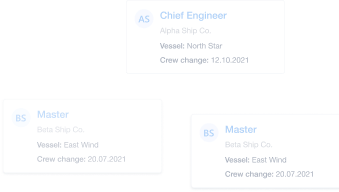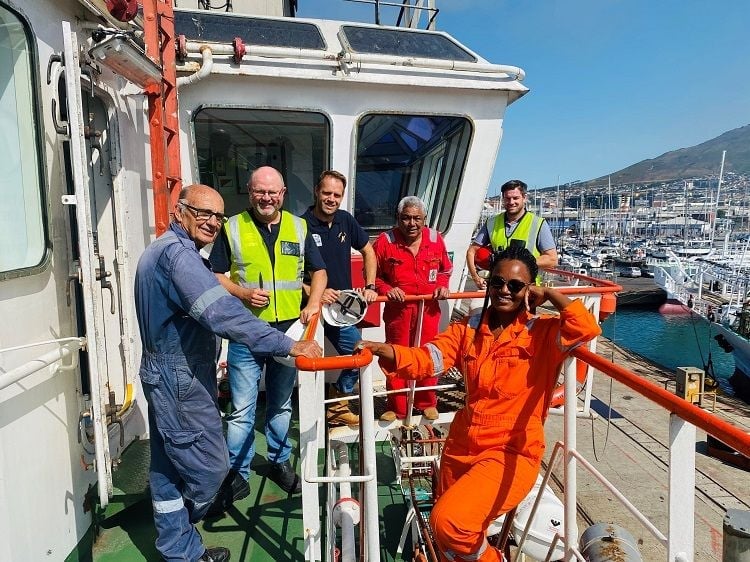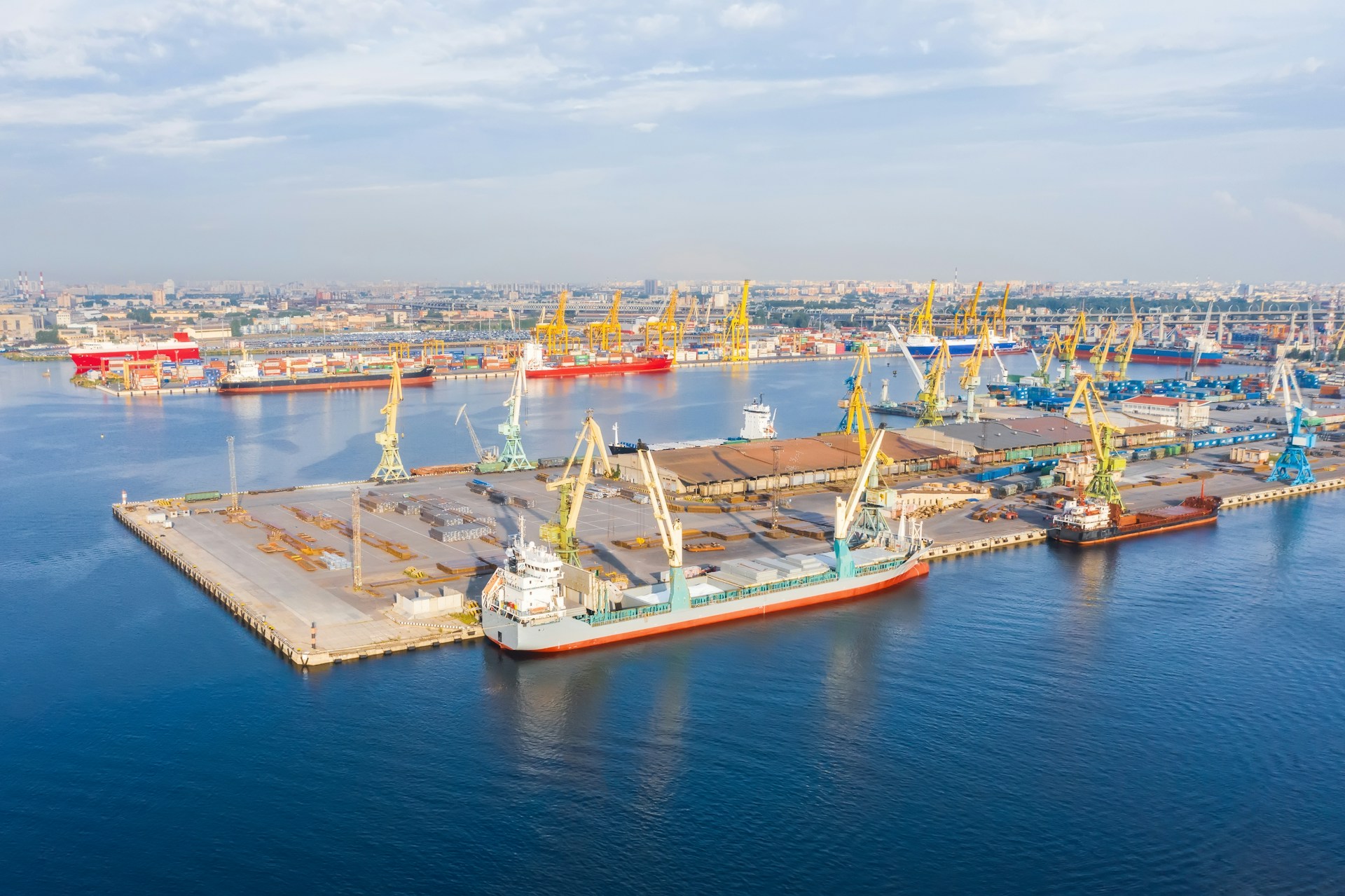5 Tips for Clearer Communication in the Maritime Industry

In most businesses, the ability to communicate clearly and concisely is crucial. Whether the communication is verbal or written, done in person or across a radio or phone, you need to get your point across in a manner that has a positive result for you, your team, your company and, of course, the person you’re communicating with.
Communication at work takes place all day long and with anyone you have any type of interaction with. And effective and professional communication should in no way be just limited to clients. You need to be able to relay messages clearly, directly and efficiently to coworkers, suppliers, and seafarers too.
To summarize, no matter whether you’re talking to the owner or CEO of your company or a brand new Deck Cadet, everyone deserves the same respect.
Why clear communication is so important in the maritime industry
Miscommunication caused by a lack of understanding or an inability to express an instruction or order can cause countless issues in any workplace. And in shipping, those miscommunications can have a more serious knock on effect than in many industries.
From personal grievances to missed crew change dates to arguments to issues with travel arrangements, having everyone on the same page and knowing what’s happening is crucial.
PS, why not follow us on Facebook, LinkedIn and Twitter / X!?
Miscommunication equals misunderstanding. And in maritime recruitment and crew planning that can have a serious impact on everything from how people view your professionalism to crew retention to health and safety.

So if you’ve ever had even the slightest bit of confusion in the workplace, whether that’s when dealing with a coworker or a crew member, you might like to take a look at our five tips for better communication.
1. Don’t use unnecessary jargon
Of course, the maritime industry comes with its own very specific language, words and acronyms and you won’t be able to avoid using certain terms. That’s fine because the people you’re talking to or emailing with will most likely understand the jargon you’re using.
But keep in mind that not everyone you talk to has the same mother tongue as you or their English might not be as good as yours. Language barriers between shore-based staff and crew can cause problems so make sure you get your message across using shorter words and sentences.
If your vocabulary is tying people up in knots, that message is getting lost or diluted.
2. Communicate clearly and directly
On a similar note, being clear is everything in successful communication. However in a busy working environment, especially in an area like maritime recruitment or crew planning, it can be easy for messages to get lost, forgotten or misunderstood.
Whether they’re in the office or onboard a vessel, check that the person you’re communicating with understands what you’re telling or asking them. And this works in both directions - if you’re not sure what someone is talking about, ask them questions or ask them to be more specific. And that leads us on to…
3. Check back in with people
Just because you’ve communicated something to someone, don’t fall into the trap of thinking that’s it. Maintaining some sort of regular contact with the coworkers and seafarers you work with is just as important as the first conversation.

We can all be a little guilty of making assumptions when we don’t communicate with someone very often. Perhaps we don’t want to bother them if we think they’re busy or if we think we know exactly what they need. So whether you’re the person giving or receiving instructions or information, make sure that the lines of communication remain open.
Read more: How to Communicate with Your Remote Teams & Offshore Crew
4. Speak to people in an appropriate manner
As we’ve seen, your workplace communications can be with anyone from your most important client to a Motorman working on one of your vessels to an applicant for one of your job vacancies. Now, we’re not saying it’s okay to ‘dumb down’ for people who might not be seen as ‘important’ but it is necessary to reframe how you deliver information depending on the person you’re communicating with.
For example, an email to the CEO or your most important client should be worded carefully and precisely. But a quick message to a teammate can be a lot more casual. This also brings us back to the point we made about jargon - keep in mind that messages to applicants and crew members need to be clearly worded so that everyone can understand them, no matter what language you and they both speak.
The last thing you want is someone missing their flight and embarkation date because of confusing communication.
5. Body language counts too!
Research tells us that a huge percentage of communication is nonverbal. 93% in fact. This shows us that body language is something that should be paid attention to, especially if you’re hosting a meeting, giving a presentation to a potential client, or interviewing a candidate for one of your seafarer job vacancies.
Make sure that your posture, facial expressions, and hand gestures all match with the verbal message you are delivering. If they don’t, the person or people you’re speaking to will end up confused - and your message could get lost.
And this goes both ways too. Knowing how to read body language is a very useful skill, particularly in interview scenarios. For example, a candidate may come across as loud and arrogant - but their body language might be telling you a different story. They could in fact just be nervous about being in an environment which is not that comfortable for them.

In a seafarer’s case, they’re probably more at ease on deck, in the engine room or on the bridge than in an office. Reading seafarer candidate body language is also crucial when it comes to assessing whether someone is under the influence of drink or drugs.
Why communicating clearly in the maritime industry is vital
Maritime recruitment, and crew planning and management can be stressful. By making sure that you’re communicating effectively, you’ll be helping your departments run more smoothly and efficiently.
Of course, everyone has different management styles, but whenever possible you should make sure that the senior ranks on your vessels also follow your organization’s ethos of communicating clearly. This will help to make your vessels safer and more efficient and pleasant places to work.
A lot of people think that long sentences and fancy words are the only way to communicate, but in reality, this is not always, if ever, the way forward.
To put it simply, communication in the maritime industry needs to be effective, not elaborate, whether it’s in an office, at a port or on a vessel.

Eve Church
Eve is Martide's content writer, publishing regular posts on everything from our maritime recruitment and crew planning software to life at sea. Eve has been writing professionally for more than two decades, crafting everything from SEO-focused blog posts and website landing pages to magazine articles and corporate whitepapers.
UK



